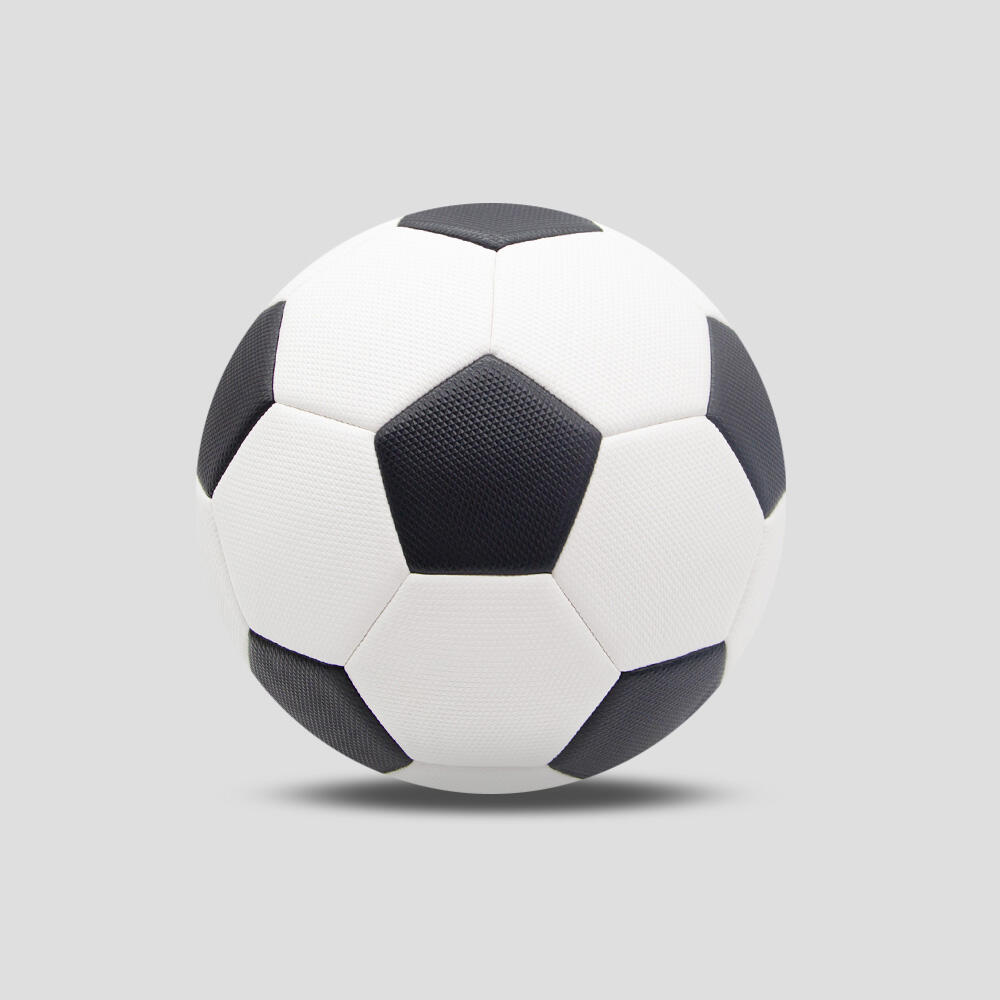Understanding Modern Soccer Ball Construction Materials
The evolution of soccer ball materials has transformed how the beautiful game is played. From the crude leather balls of the past to today's high-tech synthetic materials, the advancement in soccer ball construction has significantly improved performance, durability, and player experience. Modern soccer balls primarily use three main materials: PVC (Polyvinyl Chloride), PU (Polyurethane), and TPU (Thermoplastic Polyurethane). Each material brings unique characteristics that affect ball behavior, longevity, and overall playing quality.
Exploring PVC Soccer Balls
Advantages of PVC Construction
PVC soccer balls represent the most economical option in ball manufacturing. This synthetic material offers remarkable durability and weather resistance, making it particularly suitable for training sessions and recreational play. PVC balls maintain their shape well and can withstand rough surfaces, making them ideal for beginners and youth players who are still developing their skills.
The material's inherent strength helps these balls endure frequent impact and adverse weather conditions without significant deterioration. Additionally, PVC soccer balls require minimal maintenance and can be easily cleaned with just water and mild soap, making them practical for regular use.
Limitations of PVC Material
While PVC offers excellent durability, it comes with certain drawbacks. The material tends to be harder and less responsive compared to other options, which can affect touch sensitivity and ball control. Professional players often find PVC balls less suitable for competitive play due to their relatively rigid surface and limited flight characteristics.
The bounce and feel of PVC soccer balls may also be less consistent, particularly in colder weather when the material can become even harder. This characteristic can impact the overall playing experience and may not provide the optimal feedback needed for developing advanced technical skills.
The Premium Choice: PU Soccer Balls
Superior Performance Characteristics
Polyurethane soccer balls represent the gold standard in professional play. The material offers exceptional touch sensitivity, consistent flight patterns, and superior ball control. PU's soft yet durable nature provides players with the perfect balance of feel and responsiveness, enabling precise passes and shots.
The material's flexibility allows for optimal energy transfer during kicks, resulting in more predictable trajectories and better overall performance. Professional leagues worldwide prefer PU soccer balls for their consistent behavior and excellent shape retention properties.
Maintenance and Longevity
While PU soccer balls deliver superior performance, they require more careful maintenance to maintain their quality. The material can be more sensitive to extreme weather conditions and may need regular cleaning and proper storage to prevent degradation. However, when properly cared for, PU balls can maintain their premium playing characteristics for extended periods.
The investment in a PU soccer ball typically pays off through enhanced playing experience and reliable performance, making it the preferred choice for serious players and competitive matches.
TPU: The Innovative Middle Ground
Technical Advantages of TPU
Thermoplastic Polyurethane represents the latest innovation in soccer ball material technology. TPU combines many beneficial properties of both PVC and PU, offering an excellent balance of durability and performance. The material provides good touch sensitivity while maintaining impressive resistance to wear and tear.
TPU soccer balls feature excellent rebound characteristics and consistent flight behavior, making them suitable for both training and competitive play. The material's molecular structure allows for better shock absorption and energy return, contributing to improved ball control and shooting accuracy.
Environmental and Economic Benefits
Beyond performance advantages, TPU offers notable environmental benefits. The material is more recyclable than traditional PVC and requires less energy to produce than PU. This sustainability factor, combined with its durability, makes TPU an increasingly popular choice for environmentally conscious players and manufacturers.
The cost-effectiveness of TPU balls positions them as an attractive option for clubs and individuals seeking quality equipment without the premium price tag of top-tier PU balls.
Making the Right Choice for Your Needs
Skill Level Considerations
Selecting the appropriate soccer ball material should align with your skill level and intended use. Beginners and recreational players might find PVC balls perfectly suitable for developing fundamental skills and casual play. Intermediate players can benefit from TPU balls, which offer improved performance without excessive cost.
Advanced and competitive players should consider investing in PU soccer balls to maximize their performance potential and enjoy the highest quality playing experience. The enhanced touch sensitivity and consistent behavior of PU balls can make a significant difference in competitive situations.
Usage Environment Factors
Consider where and how frequently you'll use the ball when selecting material. PVC balls excel on rough surfaces and in challenging weather conditions, making them ideal for street soccer or basic training. TPU offers good all-around performance across various playing surfaces and conditions.
For premium playing surfaces like well-maintained grass or artificial turf, PU balls provide the best performance and allow players to fully express their technical abilities. However, using PU balls on rough surfaces may lead to faster wear and reduced longevity.
Frequently Asked Questions
How long do soccer balls of different materials typically last?
The lifespan varies significantly based on usage and care. PVC balls typically last 1-2 years under regular use, TPU balls can maintain good condition for 2-3 years, while quality PU balls can last 3-4 years with proper maintenance and primarily use on appropriate surfaces.
Can weather conditions affect soccer ball materials differently?
Yes, weather has varying effects on different materials. PVC becomes harder in cold weather and may lose shape in extreme heat. PU maintains more consistent performance across temperature ranges but can be more sensitive to moisture. TPU offers good stability across various weather conditions.
Are professional match balls always made of PU material?
While most professional match balls use PU as their primary material, some incorporate advanced TPU elements or hybrid constructions. However, pure PU remains the preferred choice for top-tier competitive play due to its superior touch and flight characteristics.


